The history of Vicente Blasco Ibáñez

Blasco Ibáñez was an important and renowned Valencian writer and politician. As leader of the city’s republican party, he became a deputy in Congress and fought against the dictatorship, forcing him to go into exile abroad. During his active political occupation, he maintained a passionate career in literature on the side, with adventurous novels about the civil war, traditional books, fiction, travel books and short stories.
Blasco Ibáñez is one of the most famous streets in the city Valencia. The Spanish writer, journalist and politician Vicente Blasco Ibáñez, who was originally from Valencia, has a street named after him that crosses a large part of the city.
Ever since he was little, this author was surrounded by stories written by Lamartine and Victor Hugo. He also lived through historical events such as the First Republic and the Cantonal rebellion. This all helped him find his calling: to become a revolutionary writer.
He was also influenced by other revolutionary writers like Constantí Llombart, from the Valencian Renaixença, who was not only an inspiration for his literature, but also for his political training.
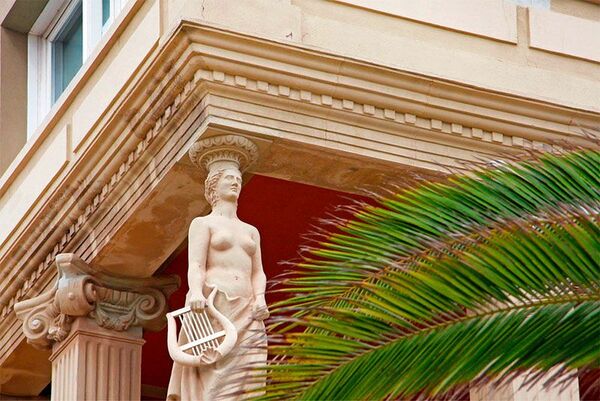
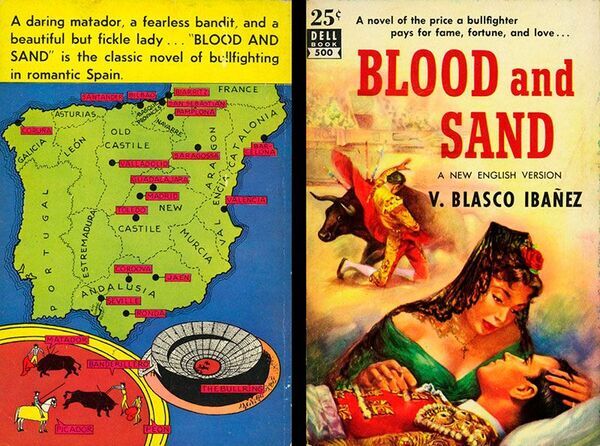
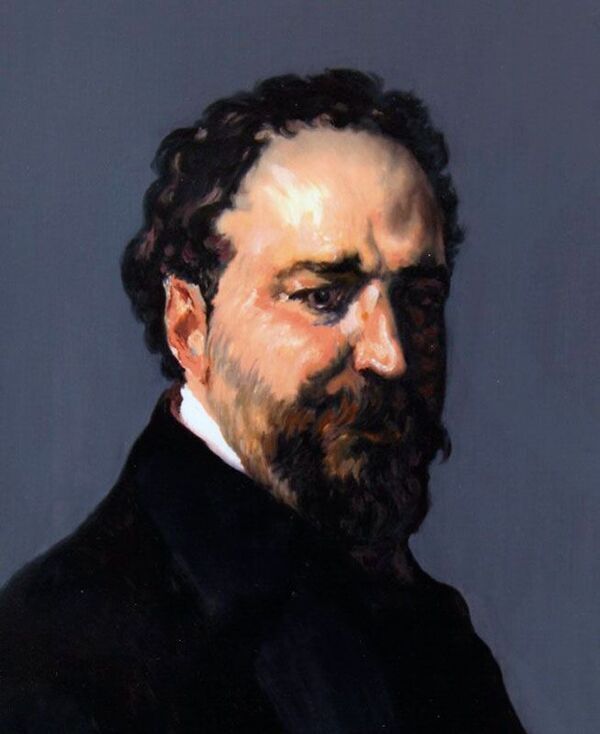
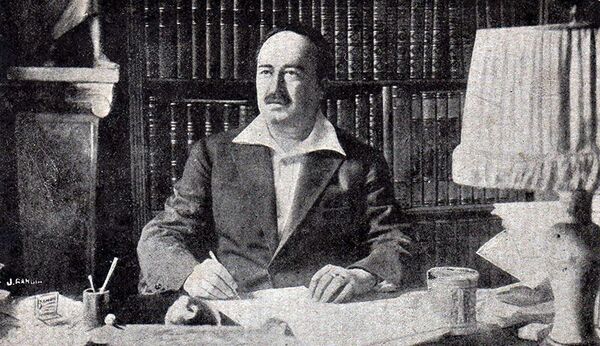
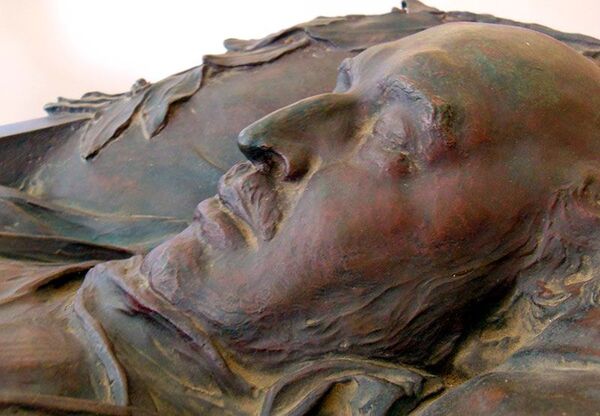





From a very young age he was involved in both literature and politics, and at the age of 16 he founded a weekly newspaper. After graduating from law school, he became politically involved in Valencia, together with the Federal Republican Party, where he discovered his persuasion skills. Blasco Ibáñez participated in boycotts such as the one carried out against the Carlist leader during his visit to Valencia. After being accused of libel he had to flee to Paris.
The Valencia-born politician was elected deputy to the Cortes in seven legislatures and even held a seat at the Congress of Deputies representing the Republican Union. Known for being a very open politician and having republican ideals, he was opposed to the monarchy and leader of the Valencian mass movement by the working class. As he founded the newspaper El Pueblo, he wrote thousands of articles, magazines and historical fiction. The newspaper was original because of the headlines, the casual writing style and the articles written by Blasco himself, where the popular class could recognise themselves.
Based on Blasco Ibáñez, a political movement called blasquismo was formed. It advocated republicanism, anticlericalism and economic reformism through the distribution of property. A dominant movement in Valencia and winner of all the elections between 1989 and 1933.
He was persecuted by justice on several occasions, being imprisoned and even being forced to flee to other countries.
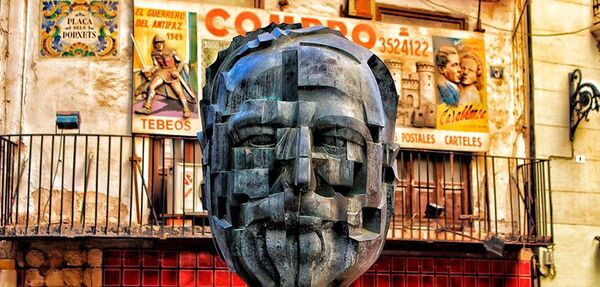
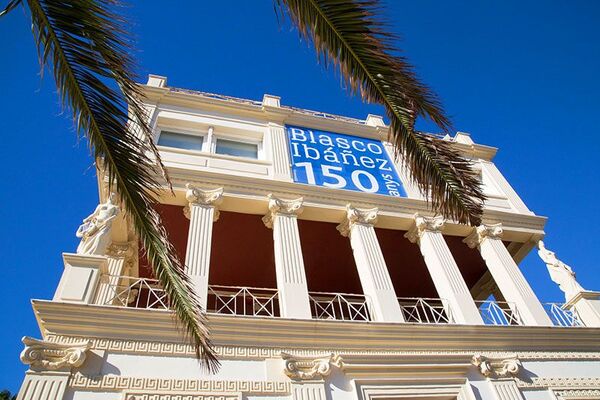
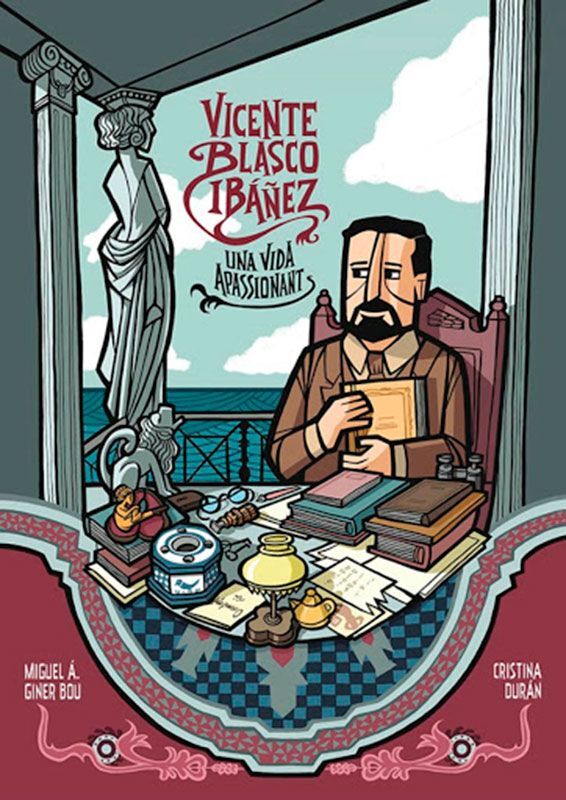
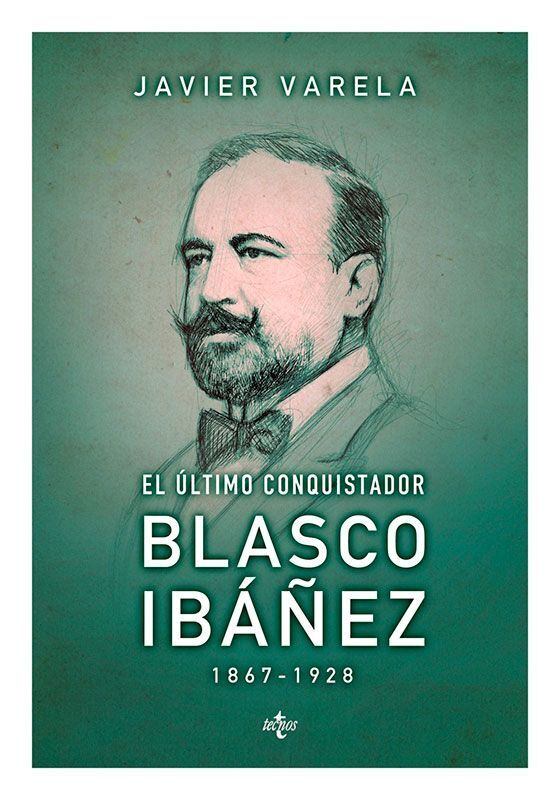
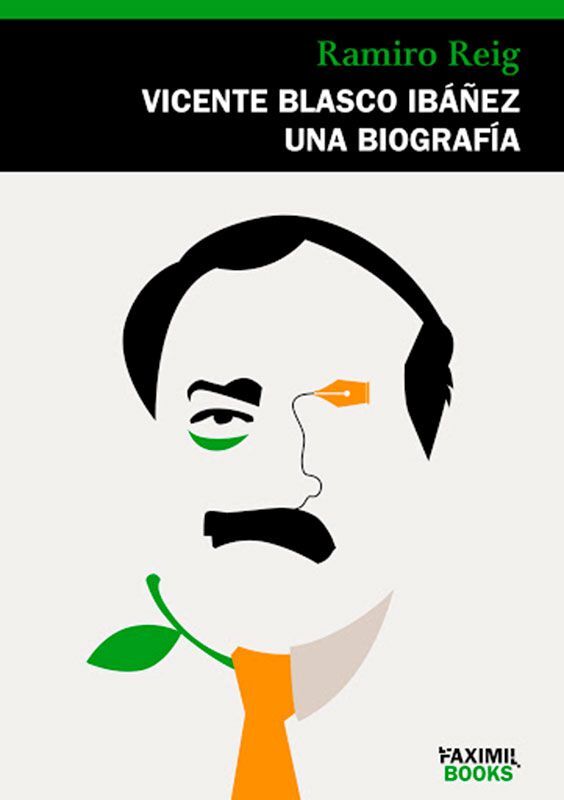





As for his career in literature, he did not only stand out as a journalist, Blasco was also a great descriptive writer. In the art world, he was considered as one of the best guides in Italy. During his politically active years he wrote his best novels, such as ‘Arroz y tartana’, ‘Flor de Mayo’, Cañas y barro’, ‘La barraca’ and ‘La horde’. His first few novels deal with a naturalistic vision, facing reality as it is, while in his later days his novels are more fictitious so as to escape reality.
He also founded the Prometeo publishing house, where his works and those of classic and contemporary authors were published at affordable prices. He became an international successful writer with ‘Los cuatro jinetes del Apocalipsis’ (The four horsemen of the apocalypse), which was followed by the Mare Nostrum novel about war at sea, and then ‘Las enemigos de la mujer’ (the enemies of women). The first one was a great success in the United States, becoming the best-selling book in 1919. A whole merchandise campaign was developed around it and some of his books even made it to the big screen.
After dying in exile during the Second Spanish Republic WAR, his memory was erased and his books were banned. His family was persecuted during the outbreak of the Spanish Civil War.
Ever since he was little, this author was surrounded by stories written by Lamartine and Victor Hugo. He also lived through historical events such as the First Republic and the Cantonal rebellion. This all helped him find his calling: to become a revolutionary writer.
He was also influenced by other revolutionary writers like Constantí Llombart, from the Valencian Renaixença, who was not only an inspiration for his literature, but also for his political training.










From a very young age he was involved in both literature and politics, and at the age of 16 he founded a weekly newspaper. After graduating from law school, he became politically involved in Valencia, together with the Federal Republican Party, where he discovered his persuasion skills. Blasco Ibáñez participated in boycotts such as the one carried out against the Carlist leader during his visit to Valencia. After being accused of libel he had to flee to Paris.
The Valencia-born politician was elected deputy to the Cortes in seven legislatures and even held a seat at the Congress of Deputies representing the Republican Union. Known for being a very open politician and having republican ideals, he was opposed to the monarchy and leader of the Valencian mass movement by the working class. As he founded the newspaper El Pueblo, he wrote thousands of articles, magazines and historical fiction. The newspaper was original because of the headlines, the casual writing style and the articles written by Blasco himself, where the popular class could recognise themselves.
Based on Blasco Ibáñez, a political movement called blasquismo was formed. It advocated republicanism, anticlericalism and economic reformism through the distribution of property. A dominant movement in Valencia and winner of all the elections between 1989 and 1933.
He was persecuted by justice on several occasions, being imprisoned and even being forced to flee to other countries.










As for his career in literature, he did not only stand out as a journalist, Blasco was also a great descriptive writer. In the art world, he was considered as one of the best guides in Italy. During his politically active years he wrote his best novels, such as ‘Arroz y tartana’, ‘Flor de Mayo’, Cañas y barro’, ‘La barraca’ and ‘La horde’. His first few novels deal with a naturalistic vision, facing reality as it is, while in his later days his novels are more fictitious so as to escape reality.
He also founded the Prometeo publishing house, where his works and those of classic and contemporary authors were published at affordable prices. He became an international successful writer with ‘Los cuatro jinetes del Apocalipsis’ (The four horsemen of the apocalypse), which was followed by the Mare Nostrum novel about war at sea, and then ‘Las enemigos de la mujer’ (the enemies of women). The first one was a great success in the United States, becoming the best-selling book in 1919. A whole merchandise campaign was developed around it and some of his books even made it to the big screen.
After dying in exile during the Second Spanish Republic WAR, his memory was erased and his books were banned. His family was persecuted during the outbreak of the Spanish Civil War.







